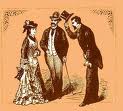Usually when I’m giving advice to aspiring authors, I name the 3 P’s as Practice, Persistence, and Professionalism. In his recent post, James Scott Bell mentioned his 3 P’s for writers: Passion, Precision and Productivity. These are all valid and equally important.
Practice
It helps if you set a daily word count or page quota and a weekly quota, then put yourself on a strict writing schedule. This gives you definitive goals. Keep moving forward. If you get stuck, either you haven’t laid the proper groundwork or you are letting outside distractions snag your attention. Don’t get hung up on self-edits until you finish your first draft. It’s easier to fix what’s on the page once the story is complete. The point here is to write on an ongoing basis. Then follow James’ advice about Precision by learning how to hone your skills. Attend writing conferences. Read Writer’s Digest. Enter contests with feedback. Join a critique group. Go to meetings of your local writing group and sign up for workshops. And keep writing.
Persistence
Persevering at this career despite rejections, bad reviews, poor sales, and other setbacks is critical to success. If you drop out, you have only yourself to blame. Keep at it, and your skills will improve along with positive responses from readers, critique partners, and editors. “Never give up, never surrender.” That holds true for a writer same as for the crew of Galaxy Quest. Have faith in yourself. If you have the drive to write, you can improve your craft and learn marketable skills. The more books you have out there, the more chances you have to gain a following. Keep going despite the odds, and be versatile. At times, you may have to try something new and different. Don’t be afraid to take risks. Whichever route you take, quitting isn’t an option.
Professionalism
Always be polite and gracious, even when you get a bad review or a rejection. It’s hard not to take these personally, but they’re aimed toward your book and not you. You don’t want anyone saying you’re a gossip or you bad-mouthed your publisher or you made condescending remarks toward another author. It’s better to be known as someone who shares her knowledge, is helpful to her peers, and is a consummate professional in her dealings with editors and agents. If you need someone to hold your hand, turn to your critique group and not your publisher or agent. With their busy lives, these people don’t care to take on needy writers. They want career authors who will persistently turn in polished manuscripts, who establish and maintain a platform, who are active online, and who understand the publishing world. Act toward others as you’d wish to be treated. You never know when a writer friend from today might become your editor tomorrow, or an editor might become an agent, or a reviewer who raked your previous books over the coals might give you a rave review. The old adage, “Don’t burn your bridges,” holds true here, too. Be polite, courteous, and helpful at all times.
Follow the P’s along the track of your writing career. If you have to step off for a brief interval, be sure to hop back aboard the train before it gathers speed and steams ahead.
<><><>
Only 2 more days to enter the Booklover’s Bench July Contest to win a $25 Amazon/BN gift card or free books by our authors: http://bookloversbench.com/contest/



